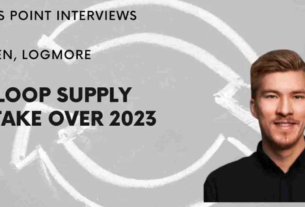Responding to the Chancellor’s Budget, Matthew Walters, Head of Consultancy Services and Customer Value at LeasePlan UK said:
On the economic situation:
“The UK has so far avoided a recession in 2023 – and the economic forecasts in this Budget, particularly those concerning inflation, were better than we might once have feared.

“However, it’s important to emphasise that we, as a country, are not out of the woods yet. There are still the ongoing effects of Brexit and the pandemic – and growth is expected to be sluggish, at best, for some time to come. This continues to be a challenging period for many businesses and individuals.
“We also know that the fleet industry is well placed to overcome these challenges, just as we have overcome similar in the past. Not only did we account for almost half of all new car sales in 2022, but we are also leading the adoption of the cleaner motoring technologies that will define the future.”
On Fuel Duty:
“Thanks to the Chancellor’s decision to freeze Fuel Duty at 52.95p per litre until at least next year, we have all avoided what would have been a double-digit increase in the main rate.
“This is more generous than we might have expected, given that Rishi Sunak’s 5p cut to Fuel Duty – which he introduced last March – was originally timed to end this month, and the 5p added back on.
“We can only welcome this decision. Even though the future of motoring – and of motoring taxation – is electric, this is not the time to hammer the millions of people and businesses who rely on petrol and diesel vehicles and already face high costs elsewhere.”

On electricity prices:
“We know that electric vehicles (EVs) offer numerous savings for fleets and motorists, from lower maintenance bills to multiple tax advantages. However, the rising price of energy has curtailed one of the best savings – the low cost of the electricity itself compared to petrol and diesel.
“Thankfully, that energy is becoming cheaper again – as highlighted by the Office for Budget Responsibility (OBR) in its supplementary documentation. And the Budget also confirms that the government is keeping its domestic Energy Price Guarantee (EPG) at £2,500 a year for an additional three months, until June. This is a tremendous boon for EV drivers.

“However, it is also worth noting that – despite the protestations of many fleets and motorists – the government is still charging 20% VAT on electricity from public charge points. The Chancellor should prioritise bringing this down to 5%, as it is for domestic charging.”
On Vehicle Excise Duty:
“Last November, in his Autumn Statement, Jeremy Hunt announced significant changes to the Vehicle Excise Duty (VED) system for cars: as of 2025, EVs won’t just have to pay VED for the first time; they will also face the additional rate for vehicles worth over £40,000.
“Given that EVs tend to have higher sticker prices than their fossil-fuelled counterparts, this threatens to be a hefty new tax for electric motorists – and potentially even a disincentive for motorists to go electric in the first place.
“We hoped to see action in the Budget to limit this impact. Indeed, we have made representations to the Department for Transport (DfT) to have the additional rate apply to only the most expensive 20% of EVs.
“Sadly, no such action was taken today. Practically the only mention of VED in the Red Book is to confirm that the main rates will increase in line with the RPI measure of inflation in April – which is currently at historically high, double-digit levels.
“If this government really is serious about Net Zero, then it needs to rethink this policy well before 2025.”
On Road Pricing:
“The Chancellor faces quite a predicament. In the years ahead, the welcome transition to EVs will cost him and his successors £billions in lost Fuel Duty revenues.
“There has been much speculation that he’d respond to this situation by moving towards another form of motoring taxation. But the long-expected consultation into the feasibility of Road Pricing still hasn’t materialised – not even in today’s Budget.
“This is dismaying for two reasons. The first: if the biggest shake-up of motoring taxation in generations is going to happen ahead of 2030 – as it surely must – then it will need years of careful development and implementation. There is no real cause to delay that process now.
“The other reason is that there’s now an increasingly long list of legislation or potential legislation that we’re still waiting for – from the necessary detail on the ZEV Mandate for manufacturers to a new system of VED for vans. Fleets and motorists need clarity on these and other issues to properly plan for the future.”


